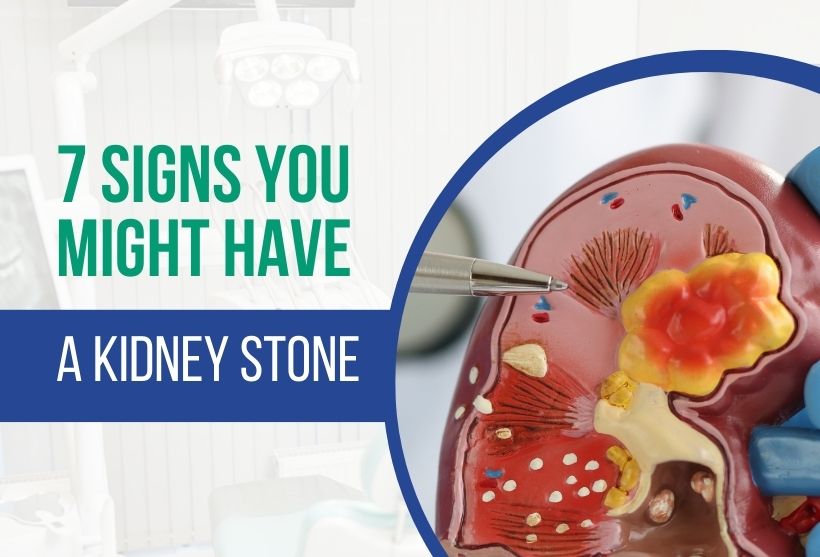7 Signs You Might Have a Kidney Stone

We all have heard about kidney stones and some of you might have also dealt with it. But how do you know if the persistent pain is actually a kidney stone and not just a regular stomach ache or back pain? Here are 7 telltale signs that suggest you might have kidney stones and that you might need kidney stone treatment.
1. Excruciating Pain
This is the most common and often the most alarming symptom. Kidney stone pain is typically described as a sharp, cramping pain in your back or side, often radiating to your lower abdomen or groin. It can come in waves, fluctuating in intensity as the stone moves through your urinary tract. This pain is often treated as severe.
2. Blood in Your Urine
Seeing blood in your urine (hematuria) can be frightening, and it's a strong indicator of a possible kidney stone. The blood may be visible to the naked eye, making your urine appear pink, red, or brown, or it may only be detectable through a microscopic examination.
3. Frequent Urgency to Urinate
A kidney stone can irritate your urinary tract, making you feel like you constantly need to pee, even if you just went. This urgency can be persistent and disruptive, especially at night.
4. Painful Urination
If you experience a burning sensation or sharp pain while urinating (dysuria), it could be a sign that a kidney stone is passing through your ureter, the tube connecting your kidney to your bladder.
5. Nausea and Vomiting
The intense pain and discomfort associated with kidney stones can trigger nausea and vomiting in some people. This is often related to the shared nerve pathways between the kidneys and the gastrointestinal system.
6. Fever and Chills
If a kidney stone blocks the flow of urine and causes an infection, you may develop a fever and chills. This is a serious complication that requires immediate medical attention.
7. Inability to Urinate or Passing Only Small Amounts
In some cases, kidney stone treatment becomes necessary because it can completely obstruct the flow of urine, making it difficult or impossible to urinate.
What to do if you suspect a kidney stone:
If you experience any of these symptoms, especially severe pain or blood in your urine, it's crucial to see a doctor right away. They can perform a physical exam, order imaging tests like a CT scan or ultrasound, and confirm the diagnosis.
Prevention is key:
While not all kidney stones are preventable, you can reduce your risk by:
- Staying hydrated: Drinking plenty of water throughout the day helps dilute your urine and prevents the formation of stones.
- Eating a balanced diet: Limit your intake of sodium, oxalate-rich foods (like spinach and nuts), and animal protein.
- Managing underlying medical conditions: Certain medical conditions, like gout or hyperparathyroidism, can increase your risk of kidney stones. Work with your doctor to manage these conditions effectively.
Kidney stones can be terribly painful, but with prompt diagnosis and kidney stone treatment, most people recover fully. Remember, if you suspect you have a kidney stone, don't hesitate to seek medical attention.
